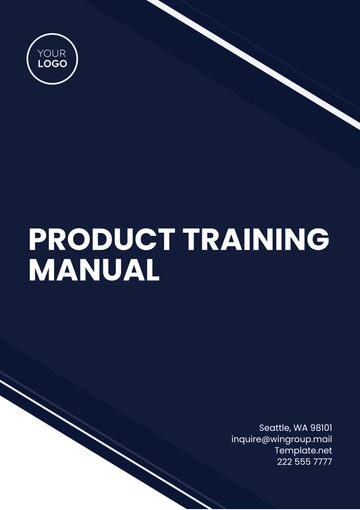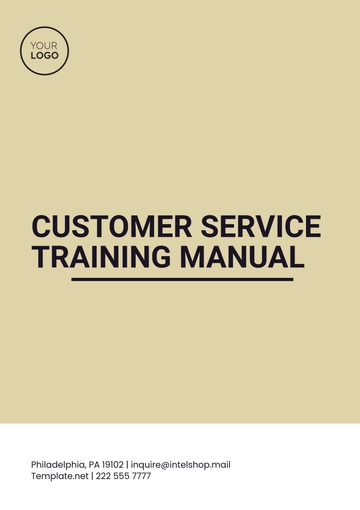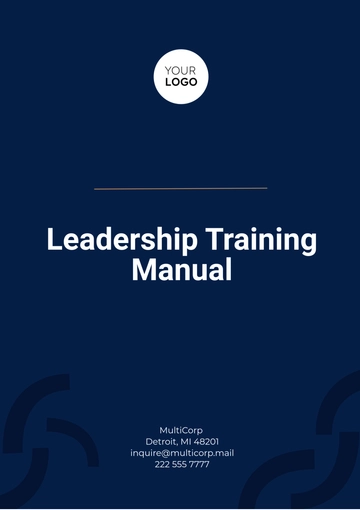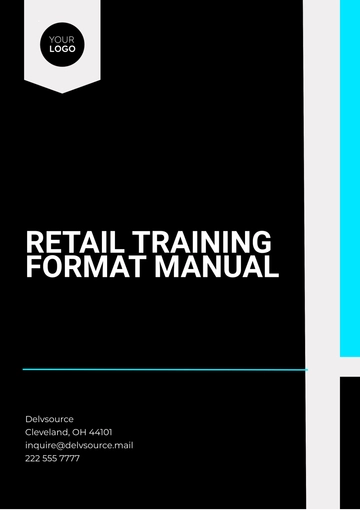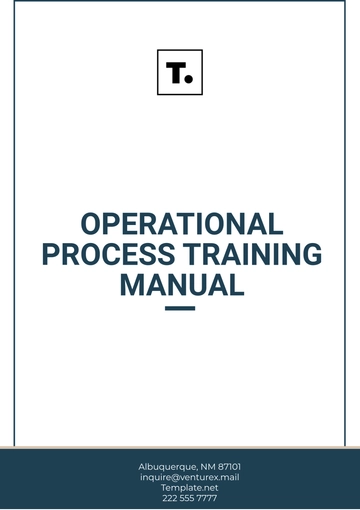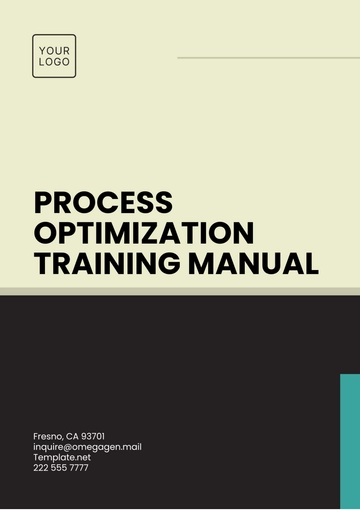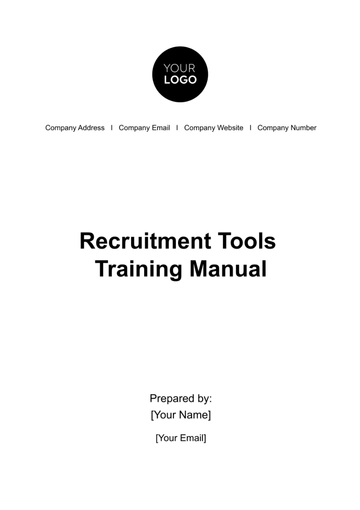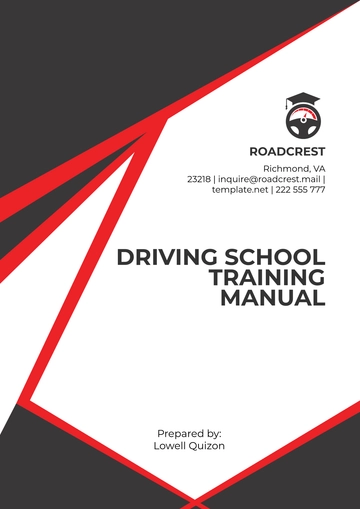Free Social Media Manager Training Manual
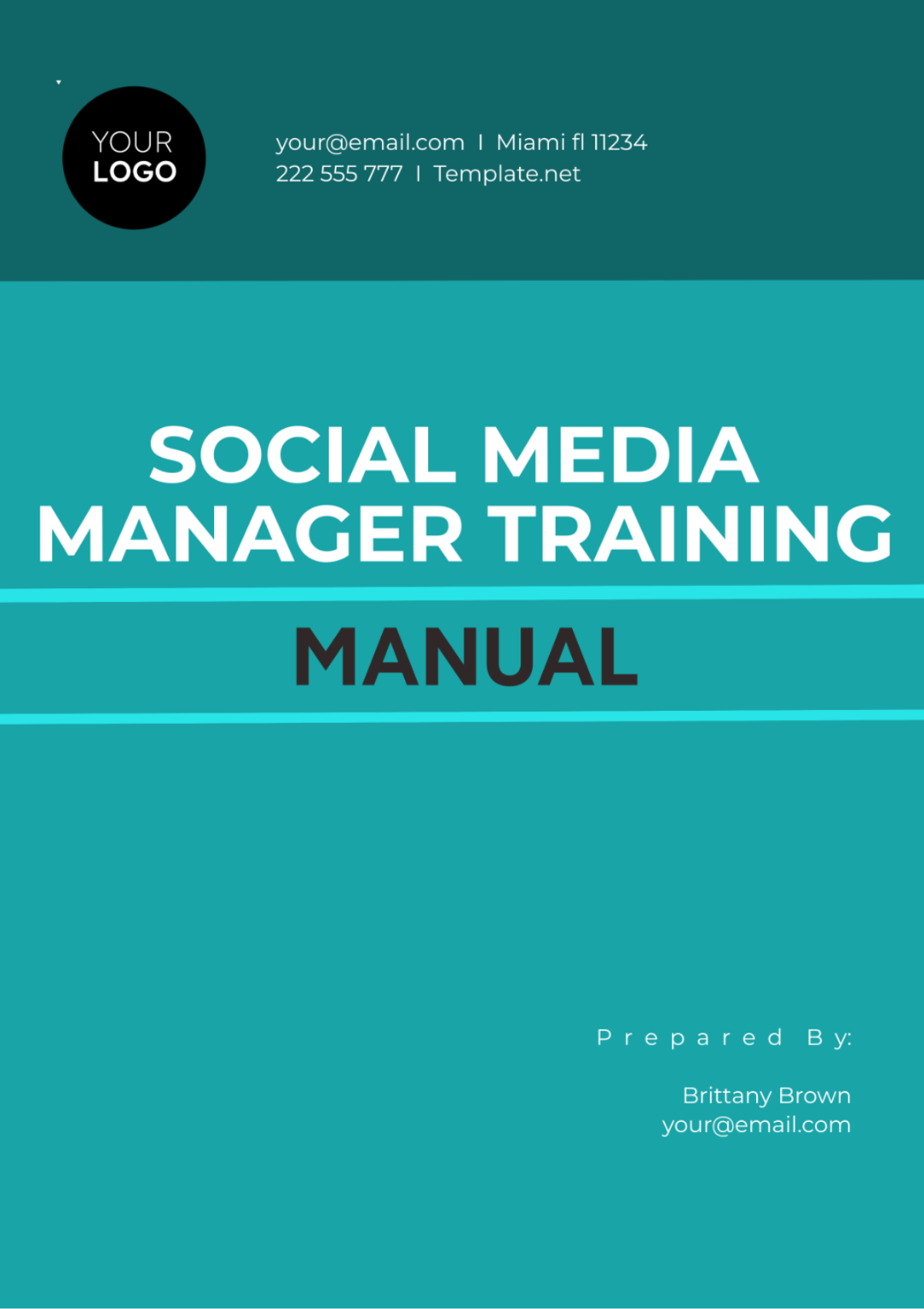
Name | [YOUR NAME] |
|---|---|
Company | [YOUR COMPANY NAME] |
Department | [YOUR DEPARTMENT] |
Date | [DATE] |
I. Introduction
Welcome to the Social Media Manager Training Manual! This comprehensive guide is designed to equip you with the essential knowledge and skills needed to excel in the dynamic field of social media management. Whether you're a seasoned marketer looking to expand your expertise or a newcomer eager to delve into the world of digital marketing, this manual will provide you with invaluable insights and practical strategies to succeed in managing social media platforms effectively.
In this manual, you will learn the fundamentals of social media management, including [YOUR COMPANY NAME]'s best practices and industry standards. From understanding the role of social media in modern marketing to mastering the art of content creation and community engagement, each section is meticulously crafted to empower you with the tools and techniques necessary to drive engagement, build brand awareness, and achieve your marketing goals.
II. Getting Started with Social Media Management
A. Understanding the Role of Social Media
In today's digital age, social media plays a pivotal role in shaping consumer behavior and influencing purchasing decisions. As a [YOUR DEPARTMENT] at [YOUR COMPANY NAME], it's crucial to grasp the significance of social media in the broader marketing landscape. Social media platforms offer unparalleled opportunities for brands to connect with their target audience, foster meaningful relationships, and establish a distinctive brand identity. By harnessing the power of social media, businesses can amplify their reach, drive website traffic, and ultimately drive conversions.
B. Setting Objectives and Goals
Before diving into social media management, it's essential to define clear objectives and goals for your marketing efforts. Whether your aim is to increase brand awareness, generate leads, or drive sales, setting SMART (Specific, Measurable, Achievable, Relevant, Time-bound) goals will provide a roadmap for your social media strategy. [YOUR NAME] will guide you through the process of identifying key performance indicators (KPIs) and developing strategies to track and measure the success of your social media campaigns.
Specific: Clearly define what you want to achieve with your social media efforts.
Measurable: Establish metrics to track the progress and effectiveness of your campaigns.
Achievable: Set realistic goals that are within reach based on your resources and capabilities.
Relevant: Ensure that your goals align with your overall marketing objectives and target audience.
Time-bound: Establish deadlines and timelines to keep your team accountable and focused on achieving results.
By setting SMART goals, you can create a framework for success and ensure that your social media efforts are aligned with the broader objectives of [YOUR COMPANY NAME].
III. Social Media Platforms Overview
A. Understanding Different Social Media Platforms
Social media encompasses a diverse range of platforms, each with its own unique features, audience demographics, and engagement strategies. In this section, [YOUR NAME] will provide an overview of the most popular social media platforms and their respective strengths and weaknesses. From the visual-centric nature of Instagram to the professional networking opportunities offered by LinkedIn, understanding the nuances of each platform is essential for crafting targeted and effective social media campaigns.
B. Selecting the Right Platforms for Your Business
With numerous social media platforms available, it's crucial to identify the ones that align with your brand identity, target audience, and marketing objectives. [YOUR NAME] will guide you through the process of selecting the right platforms for your business, considering factors such as audience demographics, content format preferences, and industry trends. By focusing your efforts on platforms where your audience is most active, you can maximize engagement and achieve better results.
Audience Demographics: Research and analyze the demographics of each social media platform to determine which ones resonate most with your target audience.
Content Format Preferences: Consider the types of content that perform well on each platform, whether it's short-form videos on TikTok or long-form articles on LinkedIn.
Industry Trends: Stay informed about emerging trends and innovations in social media marketing to adapt your strategy and stay ahead of the competition.
IV. Content Strategy and Creation
A. Developing a Content Strategy
An effective content strategy forms the foundation of a successful social media presence. In this section, [YOUR NAME] will outline the key components of a robust content strategy, including content planning, creation, and distribution. By understanding your audience's interests, pain points, and preferences, you can create compelling content that resonates with them and drives engagement.
B. Content Creation Best Practices
Creating high-quality content is essential for capturing the attention of your audience and inspiring them to take action. [YOUR NAME] will share best practices for content creation, including tips for creating visually appealing graphics, writing engaging captions, and optimizing content for different social media platforms. Whether you're crafting a tweet, designing an Instagram post, or recording a Facebook Live video, mastering the art of content creation is key to standing out in a crowded digital landscape.
Visual Storytelling: Utilize visuals such as images, videos, and infographics to convey your brand's story and message effectively.
Consistency: Maintain a consistent posting schedule to keep your audience engaged and build brand awareness over time.
Interactivity: Encourage interaction and engagement with your audience through polls, quizzes, and interactive content.
Analytics and Optimization: Regularly analyze the performance of your content using social media analytics tools and optimize your strategy based on the insights gathered.
V. Community Management and Engagement
A. Building and Nurturing Communities
Community management is a critical aspect of social media management, involving the cultivation of relationships with your audience and fostering a sense of belonging and loyalty. In this section, [YOUR NAME] will share strategies for building and nurturing communities on social media, including techniques for responding to comments, addressing customer inquiries, and moderating discussions. By actively engaging with your audience and providing value-added content, you can strengthen brand loyalty and advocacy.
B. Crisis Management
Despite your best efforts, crises may arise on social media that require swift and effective response. [YOUR NAME] will provide guidance on developing a crisis management plan and responding to negative feedback or PR incidents with professionalism and empathy. By acknowledging and addressing concerns transparently and proactively, you can mitigate the impact of crises and preserve your brand's reputation.
Active Listening: Monitor social media channels for mentions of your brand and industry keywords to stay informed about conversations happening in your community.
Timely Responses: Respond promptly to inquiries, comments, and messages to demonstrate your commitment to customer service and satisfaction.
Brand Voice and Tone: Maintain a consistent brand voice and tone across all communications to reinforce your brand's identity and values.
Escalation Procedures: Establish clear protocols for escalating issues to higher levels of management or external stakeholders when necessary.
VI. Performance Measurement and Analytics
A. Key Performance Indicators (KPIs)
Tracking and measuring the performance of your social media campaigns is essential for evaluating their effectiveness and identifying areas for improvement. In this section, [YOUR NAME] will discuss key performance indicators (KPIs) such as reach, engagement, conversion rate, and return on investment (ROI). By setting measurable goals and tracking relevant KPIs, you can assess the impact of your social media efforts and make data-driven decisions to optimize your strategy.
B. Social Media Analytics Tools
A variety of tools and platforms are available to help you track and analyze the performance of your social media campaigns. [YOUR NAME] will introduce you to popular social media analytics tools such as [TOOL NAMES] and demonstrate how to use them to gain insights into your audience demographics, engagement metrics, and content performance. By leveraging these tools effectively, you can refine your social media strategy and achieve better results.
Audience Insights: Gain a deeper understanding of your audience demographics, interests, and behavior to tailor your content and messaging accordingly.
Content Performance: Track the performance of your posts, ads, and campaigns to identify top-performing content and optimize future efforts.
Competitor Analysis: Benchmark your performance against competitors and industry benchmarks to identify opportunities for improvement and innovation.
ROI Calculation: Calculate the return on investment (ROI) of your social media efforts by comparing the cost of your campaigns to the revenue generated or other business outcomes achieved.
VII. Conclusion
Congratulations on completing the Social Media Manager Training Manual! Armed with the knowledge and skills imparted in this manual, you're well-equipped to navigate the ever-evolving landscape of social media management and drive impactful results for [YOUR COMPANY NAME]. Remember to continue learning, experimenting, and adapting your strategies to stay ahead in the dynamic world of digital marketing. Best of luck on your journey to becoming a successful social media manager.
- 100% Customizable, free editor
- Access 1 Million+ Templates, photo’s & graphics
- Download or share as a template
- Click and replace photos, graphics, text, backgrounds
- Resize, crop, AI write & more
- Access advanced editor
Discover the ultimate Social Media Manager Training Manual Template on Template.net. Crafted for efficiency, it's fully editable and customizable, empowering you to tailor content to your needs effortlessly. With seamless integration into our Ai Editor Tool, elevate your training materials to new heights. Unlock your team's potential today!


